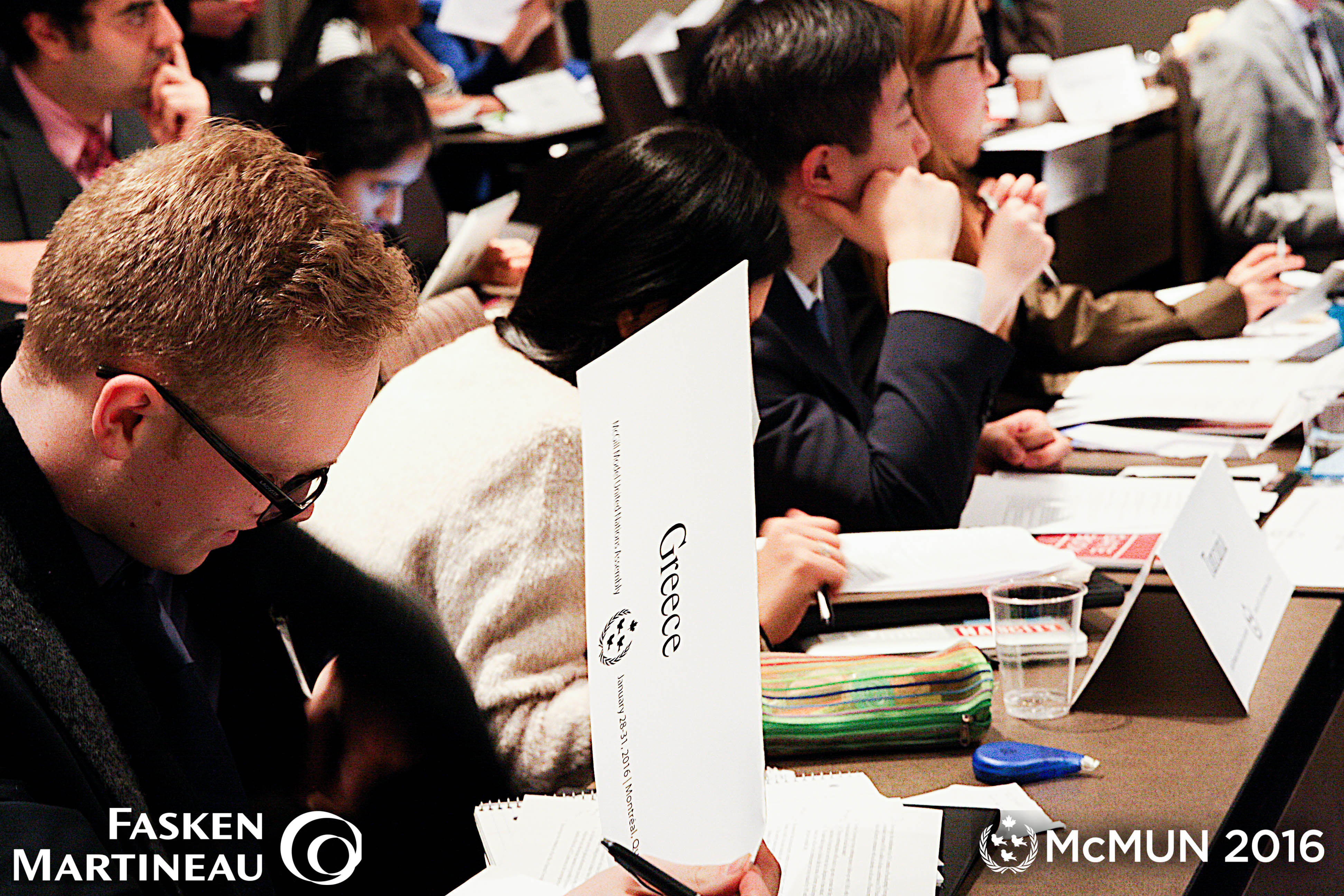Nuclear energy and peace: a challenging pair with pragmatic solutions

Early Friday morning, the DISEC General Assembly opened the floor to a group of passionate delegates to discuss matters of disarmament and international security. The initial pressing topic of nuclear proliferation quickly presented itself as an issue of unprecedented importance, as delegates repeatedly echoed wishes for improved regulation, transparency, and victimization controversies surrounding the presence of nuclear warfare.
Although the discussion on nuclear proliferation gained majority demand among the three initial topics of pressing nature, the opinions presented were far from unilateral. Motions were presented that urged the establishment of universal restrictions, with several nations claiming the impossibility of global safety without the complete eradication of nuclear weapons. Conversely, the likelihood of these reforms being successfully implemented was questioned by many. A dynamic approach to this sizable endeavor was presented by one delegate from Slovenia, who eloquently acknowledged that the road to a nuclear-free world was certainly long but could be tackled with a gradual, systematic approach. The process of transitioning from transparency to reduction to ultimate disarmament offered a pragmatic, sensible approach to the heavily disputed issue.
An interesting argument that surfaced as discussions were underway concerned alternative, positive usages of nuclear energy. As the topic of nuclear energy tends to provoke immediate thoughts of violence and political dominance, the discussion of the possibility of pursuing peaceful usages of nuclear energy as an alternative step towards a green future seemed interesting. Through opening the discussion to potential amendments to the heavily debated NPT treaty, nations promoted material accountability, surveillance as well as the modernization of the treaty itself.
Prioritizing coope ration rather than division between nations offered a hopeful approach to a complex issue, as speakers shifted arguments from personal, nation-specific opinions to agreements fostered between delegates outside the conference room. Although working papers were not anticipated to be prepared until the third committee session, movements towards solutions were beginning to present themselves and the dais strongly encouraged delegates to openly discuss their progress. It became quickly apparent that numerous transnational agreements had made significant progress throughout the day, as delegates presented the early drafts of their unique proposals. These varied from the complete prohibition of nuclear arms to the regulation of nuclear trade and financing, as well as the implementation of a nuclear forensics database. Despite the various motions that were presented today, it was apparent that a desire for global peace formed the basis of nearly every proposition. As the delegate from the Democratic People’s Republic of Korea stated near the beginning of the conference, quoting DPRK’s Minister of Foreign Affairs, “The peace demanded by humankind is not one that is fragile like a thin ice layer, but peace that is rock firm, durable, and permanent”.
ration rather than division between nations offered a hopeful approach to a complex issue, as speakers shifted arguments from personal, nation-specific opinions to agreements fostered between delegates outside the conference room. Although working papers were not anticipated to be prepared until the third committee session, movements towards solutions were beginning to present themselves and the dais strongly encouraged delegates to openly discuss their progress. It became quickly apparent that numerous transnational agreements had made significant progress throughout the day, as delegates presented the early drafts of their unique proposals. These varied from the complete prohibition of nuclear arms to the regulation of nuclear trade and financing, as well as the implementation of a nuclear forensics database. Despite the various motions that were presented today, it was apparent that a desire for global peace formed the basis of nearly every proposition. As the delegate from the Democratic People’s Republic of Korea stated near the beginning of the conference, quoting DPRK’s Minister of Foreign Affairs, “The peace demanded by humankind is not one that is fragile like a thin ice layer, but peace that is rock firm, durable, and permanent”.
Photo credits to McMUN/Jinah Kim
